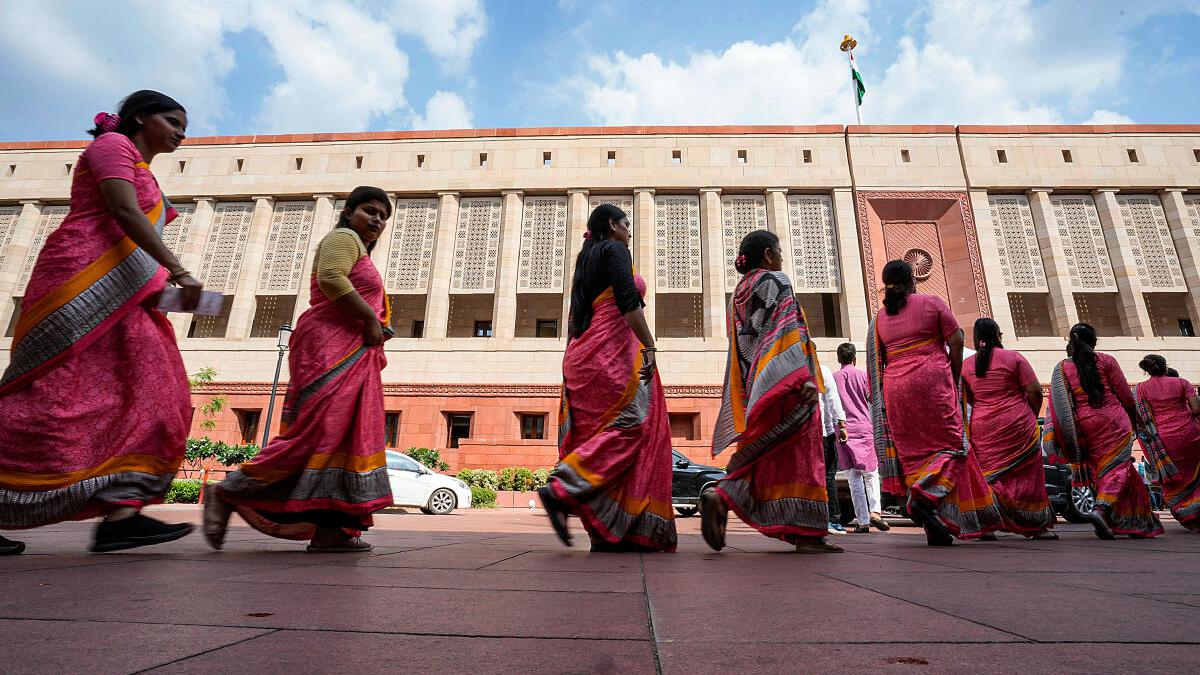
Women Reservation Bill: In 20 States & UTs less than 10% MLAs are female | Data
The Hindu
The BJP government introduced the Women’s Reservation Bill in the new Parliament House, and it was passed by the Lok Sabha on September 20, 2023. The bill proposes to reserve one-third of the seats in the Lok Sabha and State Assemblies for women. However, it can only be implemented after a delimitation exercise in 2026, with implementation likely in the 2029 general election. Currently, there are only 82 women members in the Lok Sabha, constituting 15% of its members. India’s history of women’s representation in parliament has never exceeded 15%, and only 9% of women candidates in the 2019 general election. State Legislative Assemblies also have low representation of women, with only one state, Tripura, having reached the 15% mark. In many states, the share of women MLAs is less than 10%. In the 2023 election, Nagaland saw its first two women MLAs, while Mizoram had none in the past seven Assemblies. When looking at political parties, women constitute just 13.5% of sitting members of the Bharatiya Janata Party in the Lok Sabha. The Biju Janata Dal and Trinamool Congress have the highest shares of women MPs. Similarly, Trinamool Congress in West Bengal and Congress in Chhattisgarh have the highest shares of women MLAs. India’s share of women in parliament is among the lowest in the world, ranking just above Iran within the BRICS nations. Over time, countries like South Africa and Ethiopia have made significant progress in women’s representation in their national legislatures.
The BJP government tabled the Women’s Reservation Bill as the first order of business in the new Parliament House on September 19. Prime Minister Narendra Modi called the Bill a historic decision and said that he had been chosen by god for the noble task of giving rights to women. The bill was passed in Rajya Sabha unanimously on September 21, a day after it received near-unanimous approval in the Lok Sabha
First introduced in 1996 in the Lok Sabha by the H.D. Deve Gowda-led United Front government, the Bill did not get the approval of the House. It was reintroduced many times subsequently but failed to pass muster and lapsed with the dissolution of Houses.
As per the 128th Constitutional Amendment Bill, 2023, or the Nari Shakti Vandan Adhiniyam, a third of the seats in the Lok Sabha and State Assemblies is proposed to be reserved for women. However, the amendment to the Constitution comes with a caveat that it can be implemented only after a delimitation exercise — scheduled to be held in 2026 — has been completed, using data from the latest Census conducted after the passage of the Bill. This effectively pushes the earliest year of implementation to the 2029 general election.
After implementation, there should be at least 181 (approximately 33.3% of seats) women members in the Lower House. At present there are 82 women in the Lok Sabha which amounts to 15% of its members (Chart 1). The share of women parliamentarians has never exceeded the 15% mark in over 70 years of India’s electoral history. When considered as a share of total candidates who participated in the 2019 general election, their share is even lower at 9%. The share of women candidates has never exceeded the 9% mark ever.
Chart 1 shows the share of women members in the Lok Sabha over time (in %).
Chart appears incomplete? Click to remove AMP mode
In the case of the sitting State Legislative Assemblies, the share of women MLAs is far lower with just one State — Tripura— touching the 15% mark (Chart 2). Women members formed less than 10% of Legislative Assemblies in 20 States and Union Territories. This includes States such as Gujarat (8.2%), Maharashtra (8.3%), Andhra Pradesh (8%), Kerala (7.9%), Tamil Nadu (5.1%), Telangana (5%) and Karnataka (4.5%).













